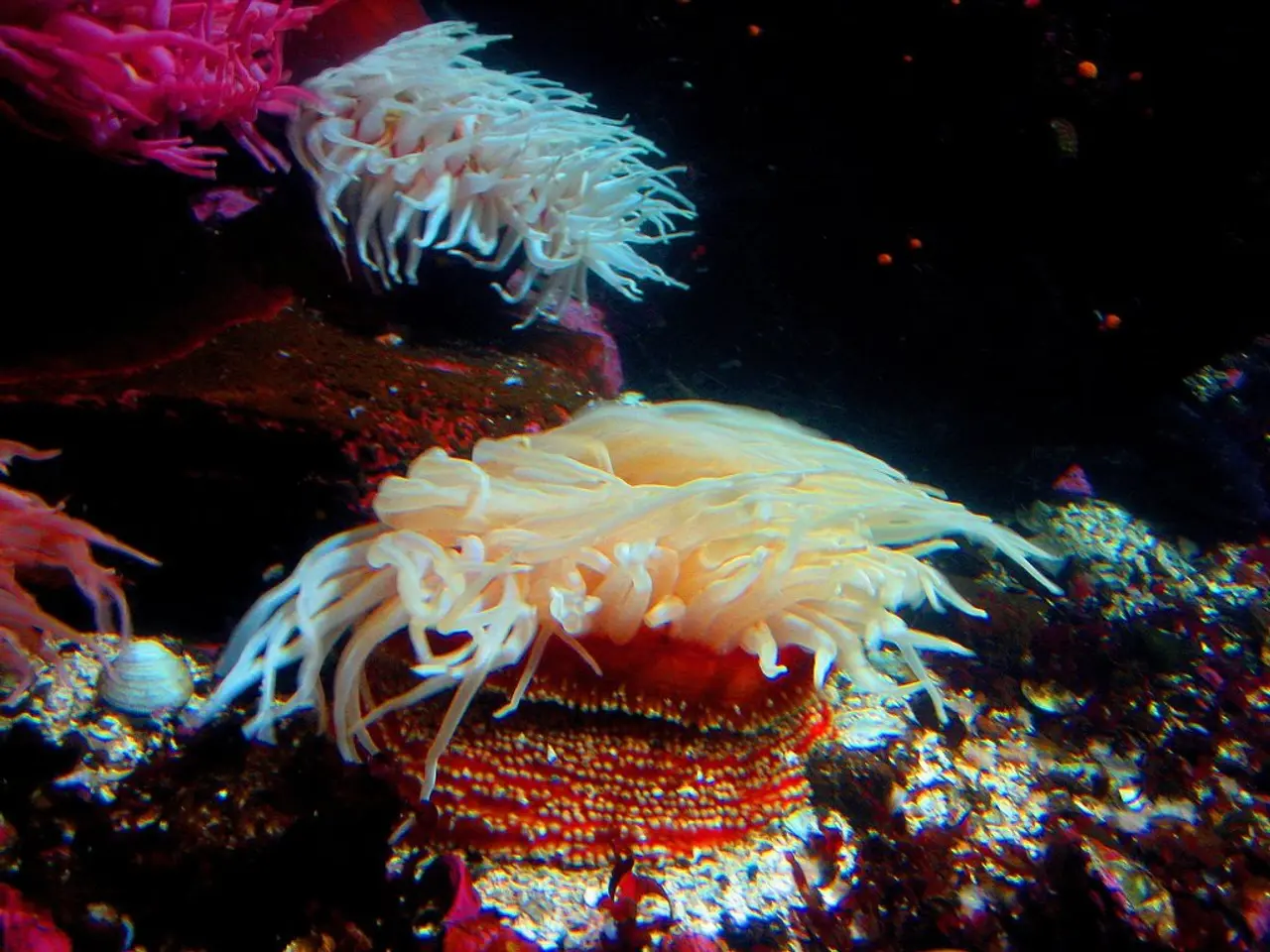United Arab Emirates' government endorses essential plans to stimulate economic growth, enhance healthcare services, and fortify global collaborations.
UAE Cabinet Approves New Policies and Strategies to Boost Economy and Social Support
In a significant move, the UAE Cabinet held a meeting at Qasr Al Watan in Abu Dhabi, where several key decisions were made to enhance the nation's economy, healthcare policies, and postal services.
The meeting, attended by high-profile government leaders such as Sheikh Mansour bin Zayed Al Nahyan, Sheikh Hamdan bin Mohammed bin Rashid Al Maktoum, and Sheikh Maktoum bin Mohammed bin Rashid Al Maktoum, saw the approval of the National Investment Strategy 2031. This strategy aims to transform the UAE into a leading global investment hub, with a target to grow total foreign investment stock from AED 800 billion to AED 2.2 trillion by 2031.
The UAE's economic partnerships, particularly with India, were also emphasized. Through a comprehensive partnership agreement, tariff-free exports via Dubai are expected to serve as a gateway to the Gulf region, Africa, and Southeast Asian markets.
To further bolster the economy, the Cabinet approved a 29% increase in the annual budget for social support programs, raising it to nearly AED 3.5 billion. This increase will support regulations on social support for unemployed individuals and the Inflation Allowance program.
In terms of healthcare policies, the Pharmaceutical Policies Committee and the Postal Sector Regulatory Committee were created to enhance healthcare policies and postal services, respectively.
The National Investment Strategy 2031 prioritizes five key sectors: industry, financial services, transport & logistics, renewable energy & water, and telecommunications & IT. The Industrial Technology Transformation Programme was reviewed, with the launch of the Industrial Technology Transformation Index (ITTI) to measure factory technological advancement and sustainability.
Other significant decisions included the launch of the National Green Certificates Programme for buildings, a voluntary classification system assessing sustainable commercial buildings, hotels, industrial establishments, and government properties. The Remote Work System for Federal Employees Abroad was established, enabling global talent to contribute to UAE projects remotely.
The National Digital Economy Strategy was discussed, with a goal to increase its contribution to GDP from 9.7% to 19.4% through digital transformation initiatives. The Emirates Research and Development Council was restructured, led by H.H. Sheikh Abdullah bin Zayed Al Nahyan, to drive national research priorities.
The Cabinet also ratified 28 International Agreements, including Economic Partnership Agreements with Malaysia, New Zealand, and Kenya, strengthening global economic ties. The UAE's economic partnerships with Africa were reviewed, noting that 95% of approved initiatives have been implemented, leading to an 87% increase in trade volume with Sub-Saharan Africa.
The National Investment Strategy 2031 includes 12 new programs and 30 initiatives, such as the Financial Sector Development Programme and the InvestUAE Initiative. The number of beneficiaries has grown by 37%, and 3,200 individuals have been integrated into the workforce, transitioning from financial aid recipients to active contributors.
These decisions reflect the UAE's commitment to fostering a prosperous and sustainable economy, while also prioritizing social support and environmental sustainability.
Read also:
- visionary women of WearCheck spearheading technological advancements and catalyzing transformations
- Recognition of Exceptional Patient Care: Top Staff Honored by Medical Center Board
- A continuous command instructing an entity to halts all actions, repeated numerous times.
- Oxidative Stress in Sperm Abnormalities: Impact of Reactive Oxygen Species (ROS) on Sperm Harm








